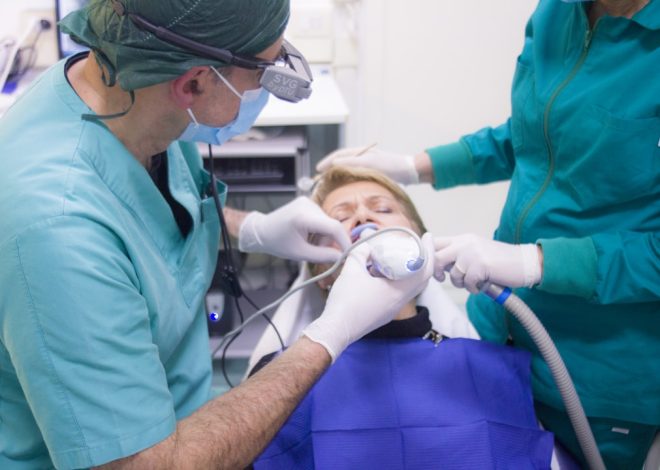
Dental Bonding: Affordable Cosmetic Dentistry Solution
Dental bonding is a cosmetic dental procedure that involves the application of a tooth-colored resin material to the teeth to improve their appearance. This procedure is commonly used to repair chipped, cracked, or discolored teeth, as well as to close gaps between teeth and to change the shape or size of teeth. The resin material used in dental bonding is carefully matched to the color of the patient’s natural teeth, resulting in a seamless and natural-looking smile.
Dental bonding is a popular choice for patients looking to enhance the aesthetics of their smile without undergoing more invasive procedures such as dental veneers or crowns. It is a relatively quick and painless procedure that can be completed in a single visit to the dentist’s office. Dental bonding is also a cost-effective option for improving the appearance of the teeth, making it an attractive choice for many patients seeking cosmetic dental treatment.
Key Takeaways
- Dental bonding is a cosmetic dental procedure that uses a tooth-colored resin material to repair and improve the appearance of teeth.
- The benefits of dental bonding include its ability to repair chipped or cracked teeth, close gaps between teeth, and improve the appearance of discolored teeth.
- The procedure of dental bonding involves roughening the surface of the tooth, applying a conditioning liquid, applying the bonding material, shaping and smoothing it, and then hardening it with a special light.
- Good candidates for dental bonding are individuals with minor cosmetic imperfections on their teeth, such as chips, cracks, or discoloration.
- Dental bonding can last anywhere from 3 to 10 years, depending on the individual’s oral hygiene habits and the location of the bonded teeth.
The Benefits of Dental Bonding
One of the main benefits of dental bonding is its versatility. It can be used to address a wide range of cosmetic dental issues, including repairing chips and cracks, filling in gaps between teeth, and reshaping teeth to improve their appearance. Additionally, dental bonding is a minimally invasive procedure that typically does not require the removal of any tooth enamel, making it a conservative option for improving the aesthetics of the teeth.
Another benefit of dental bonding is its natural appearance. The resin material used in dental bonding is carefully matched to the color of the patient’s natural teeth, resulting in a seamless and natural-looking smile. This makes dental bonding an ideal choice for patients who want to improve the appearance of their teeth while maintaining a natural look.
Furthermore, dental bonding is a relatively quick and painless procedure that can typically be completed in a single visit to the dentist’s office. This makes it a convenient option for patients with busy schedules who are looking to enhance the aesthetics of their smile without having to undergo multiple appointments or extensive downtime.
The Procedure of Dental Bonding
The dental bonding procedure typically begins with the dentist selecting a shade of resin that closely matches the color of the patient’s natural teeth. The surface of the tooth is then roughened and a conditioning liquid is applied to help the resin material adhere to the tooth. Once the tooth is prepared, the dentist will apply the resin material to the tooth and mold it into the desired shape. A special light is then used to harden the resin, and any final adjustments are made to ensure a natural and comfortable fit.
After the resin has been hardened, the dentist will further shape and polish the material to blend seamlessly with the surrounding teeth. The entire dental bonding procedure can usually be completed in a single visit to the dentist’s office, making it a convenient option for patients seeking cosmetic dental treatment.
Who is a Good Candidate for Dental Bonding?
| Criteria | Description |
|---|---|
| Tooth Discoloration | Patients with stained or discolored teeth may be good candidates for dental bonding. |
| Minor Tooth Gaps | Individuals with small gaps between their teeth can benefit from dental bonding. |
| Chipped or Cracked Teeth | Those with minor chips or cracks in their teeth can consider dental bonding as a treatment option. |
| Desire for Cosmetic Improvement | Patients who want to improve the appearance of their smile without extensive dental work may find dental bonding suitable. |
| Good Oral Health | Individuals with good overall oral health and hygiene are generally good candidates for dental bonding. |
Good candidates for dental bonding are individuals who are looking to improve the appearance of their teeth without undergoing more invasive procedures such as dental veneers or crowns. Dental bonding is an ideal option for patients with minor cosmetic dental issues such as chipped, cracked, or discolored teeth, as well as those looking to close gaps between teeth or change the shape or size of their teeth.
Additionally, candidates for dental bonding should have good overall oral health and be free from any underlying dental issues such as gum disease or tooth decay. It is important for patients considering dental bonding to have realistic expectations about the outcome of the procedure and to discuss their goals with their dentist during a consultation.
How Long Does Dental Bonding Last?
The longevity of dental bonding can vary depending on factors such as oral hygiene habits, diet, and lifestyle choices. With proper care, dental bonding can last anywhere from three to ten years before needing to be repaired or replaced. It is important for patients to maintain good oral hygiene practices, including regular brushing and flossing, as well as attending routine dental check-ups to ensure the longevity of their dental bonding.
It is also important for patients with dental bonding to avoid habits that can compromise the integrity of the resin material, such as biting on hard objects or using teeth as tools. Additionally, patients should be mindful of consuming foods and beverages that can stain the resin material, such as coffee, tea, and red wine.
The Cost of Dental Bonding

The cost of dental bonding can vary depending on factors such as the extent of treatment needed, the location of the dental practice, and the experience of the dentist performing the procedure. On average, dental bonding can cost anywhere from $100 to $400 per tooth. It is important for patients to consult with their dentist to obtain an accurate cost estimate based on their individual treatment needs.
While dental bonding is generally considered a more cost-effective option compared to other cosmetic dental procedures such as veneers or crowns, it is important for patients to consider their budget and explore financing options if needed. Many dental practices offer payment plans or financing options to help make cosmetic dental treatment more accessible to patients.
Finding a Qualified Dentist for Dental Bonding
When seeking dental bonding treatment, it is important for patients to find a qualified and experienced dentist who specializes in cosmetic dentistry. Patients can start by asking for recommendations from friends or family members who have undergone similar procedures, or by researching online reviews and testimonials from previous patients.
It is also important for patients to schedule a consultation with a potential dentist to discuss their treatment goals and ask any questions they may have about the procedure. During the consultation, patients can also inquire about the dentist’s experience with dental bonding and ask to see before-and-after photos of previous cases.
Additionally, patients should ensure that the dentist they choose has received proper training and certification in cosmetic dentistry and has a clean and professional office environment. By taking these steps, patients can feel confident in their choice of dentist and look forward to achieving a beautiful and natural-looking smile through dental bonding.
FAQs
What is dental bonding?
Dental bonding is a cosmetic dental procedure in which a tooth-colored resin material is applied and hardened with a special light, bonding it to the tooth to improve its appearance.
How much does dental bonding cost?
The cost of dental bonding can vary depending on factors such as the location of the dental practice, the extent of the bonding needed, and the expertise of the dentist. On average, the cost of dental bonding can range from $100 to $400 per tooth.
Is dental bonding covered by insurance?
In some cases, dental bonding may be covered by dental insurance if it is deemed medically necessary. However, since dental bonding is primarily a cosmetic procedure, it may not be fully covered by insurance. It’s best to check with your insurance provider to understand your coverage.
How long does dental bonding last?
With proper care and maintenance, dental bonding can last anywhere from 3 to 10 years. However, it is important to avoid habits such as biting on hard objects or using teeth as tools, as these can shorten the lifespan of the bonding.
Is dental bonding a permanent solution?
Dental bonding is considered a semi-permanent solution, as it may need to be replaced or touched up over time due to wear and tear. However, with proper care, dental bonding can provide long-lasting results.


